The life of a translator with bipolar disorder & his family
An emotional recount of the difficulties by his father touched millions.
The following article was published on Page 12 of the Hangzhou Daily on January 17, 2022, entitled 我们的天才儿子 Our Genius Son. It appeared on the same day at the newspaper’s WeChat blog as 杭州男子从殡仪馆打来电话:能不能写写我们的天才儿子 Phone Call from Hangzhou Man in Funeral Parlor, Asking (Newspaper) to Write an Article for His Genius Son.
In no time, the article blew up or swept through the Chinese Internet. Pekingnology, on the last day of this Chinese Lunar Year of the Ox, hereby presents a full translation, undertaken mostly by Zhixin Wan and proofread by Bofei Zhang and your Pekingnologist.
***
Narrated by 金性勇 Xingyong Jin, the father of 金晓宇 Xiaoyu Jin.
I felt my hands shaky and legs trembling. It was the morning of November 11, 2021, soon after I properly placed the urn of my late wife at Hangzhou Funeral Parlor. I then sent off the relatives and friends, for I simply wanted to be with her alone.
When she was still quite sharp, she asked me to place her urn at the parlor first and leave the decision to our older son when he gets home – whether to bury the urn or throw the ashes in the river and ocean.
I did not call my older son, 金晓天 Xiaotian, as my wife had requested. He is stranded overseas after all, due to Covid-19. I did not tell our younger son, 金晓宇 Xiaoyu, either, for he had been hospitalized since October.
I figured I would hide the truth from them, for now.
I stared at the urn, mumbling, as if to my late wife, “I’m going to make the phone call, alright? Otherwise, no one would ever know the story of our younger son, in case I pass away as well.”
I reached into my wallet hanging on my wrist and took out my phone, as well as an issue of the Hangzhou Daily. On top of it, I had taken down the number for its column "Life Story Mailbox." Someone picked up, and I said to them, "Could you please write about my son? He’s a genius, and he is in the psychiatric hospital. His mom just passed away today."
At the age of six, Xiaoyu’s eye was blinded by a needle shot out of a toy gun of his friend.My hometown is Tongxiang in China’s eastern Zhejiang Province. My father was a principal of an elementary school. My mother-in-law had taught me. My wife and I grew up living next door to each other, sharing a yard, so we go way back.
Her name is 曹美藻 Meizao Cao. Later, I was admitted to Shanghai Institute of Chemical Technology for college, and Meizao was admitted to the School of Chemistry and Chemical Engineering, Nanjing University. Four years later, we were both assigned to work in the municipality of Tianjin. We got married in 1967. Before long, we had our first son, Xiaotian. Five years into marriage, our little boy Xiaoyu came to this world.
In 1984, we moved back to Hangzhou [the capital of home province Zhejiang]. We wanted to return to our roots like falling leaves. The main reason for us going back, however, was that we had had a thorn growing in our hearts all these years. Never did we expect the thorn to turn into a knife that stabbed Xiaoyu’s life.
We lived in a dormitory for employees when we were working in Tianjin. It was a small apartment, fifty to sixty square meters (160 to 170 square feet). When Xiaoyu was six, one day he played with his friend who had a toy gun that shot small paper balls. No one anticipated that he had loaded the toy gun with a needle that day, and the needle shot straight into Xiaoyu’s left eye. The eye lens broke.
That eye remains blind. Xiaoyu could only squint things with the other eye. Being the one who suffers, Xiaoyu often consoled us instead by saying, “It’s alright. I am used to it.”
Luckily, both our sons are smart. After we moved back, our elder son tested into Fudan University [one of the top universities in China]. He then moved to Australia after taking TOEFL. Xiaoyu, our younger son, was placed in the A-level class in high school. His teacher told us he would have no problem getting admitted into a university. But one day, Xiaoyu told us he did not want to go to college and wanted to quit high school.
Xiaoyu started to hate school all of a sudden. His personality changed radically, smashing all the home appliances.We thought his weariness of school was temporary and that he could not possibly mean it, but Xiaoyu did remain at home. I pulled some strings and helped him find a job as a salesman at a bookstore, thinking he would want to return to school after a while.
The bookstore fired Xiaoyu within two months because he accused a regular customer of shoplifting, and they had a verbal fight. Later, I found a job for him as a worker in an exhaust fan factory, but he stopped getting in after a few days, saying his colleagues were mean to him.
Since quitting school, Xiaoyu had been lying in bed day and night. He refused to talk to us and often lost his temper for no reason. He turned into a completely different person.
One day, when my wife and I were watching TV, we heard a bang. Xiaoyu shoved down the refrigerator in the kitchen. It was his first violent behavior.
Because of his violence, we had nothing but bare walls. We could be the only home in Hangzhou without a television. He broke three TVs and poured water inside. We replaced several broken refrigerators and washing machines. He would also smash tables, bookshelves, cabinets, and doors. We did not know what to do.
My wife asked me in desperation: “Has he gone mad?”
He went to a college, but could not stick with it. A doctor diagnosed Xiaoyu as having manic depression/bipolar disorder.For quite a long time, we did not know Xiaoyu was mentally ill. When he told us he wanted to go to college, we were so happy and put him in a tutoring class. He missed most classes in high school, but within a few months, he got a startling score in the college entrance examination - just three points shy of the tier-one colleges.
He applied to the Foreign Languages Department of Hangzhou University and his score was above its admission line. We happily waited for the admission letter. However, it rejected our application at the last minute because of Xiaoyu’s record in high school — too many absences and undisciplined behaviors.
After ups and downs, Xiaoyu finally landed in Zhejiang Shuren University. However, after one year, he broke down. Xiaoyu and a few friends went for a few drinks. Xiaoyu got drunk and excited and could not help climbing on top of his teacher’s car, according to his classmates. No one could stop him.
The school thought he was just drunk and sent him to a hospital. Xiaoyu was angry at my appearance. “Why are you here?” he asked in fury, “Take out the needle, I want to go home!”
I brought him home, and I knew he would never return to college.
For two years, he devoted himself to studying. He was more hardworking than was actually in school. His effort paid off. Two years later, he took part in the Self-Taught Higher Education Examinations [which allows students to finish studies through self-study without going to school] and received a bachelor’s degree in the category of self-education from the English Department of Zhejiang University [one of China’s top universities].
However, horrible things followed. One day when I was out, my wife just could not wake Xiaoyu up. It turned out he had attempted suicide by taking many sleeping pills. My wife and a neighbor quickly took Xiaoyu to the hospital for gastric lavage. Xiaoyu was fortunately saved because he did not take the fatal number of pills.
A few days later, we heard a crash coming out of his room. We rushed over, only to see Xiaoyu lying on the floor. A belt was hanging between the pendant light and the window. We held him in our arms and cried, “Boy, don’t be stupid!”
I major in pharmaceutical chemistry, and I knew Xiaoyu’s behavior was not a character defect. So, I searched for reasons in books. I learned that Xiaoyu’s symptoms were similar to those of mental diseases. We took him to various hospitals and Xiaoyu was diagnosed as having manic depression, or bipolar disorder. People with bipolar disorder would switch between depression and mania. Under depression, Xiaoyu did not want to go to school; he felt distressed and did not sleep at night. He even committed suicide. During manic periods, he was paranoid and blamed people for no reason - getting restless and destroying things.
We were okay with him not going to school, not working, and not married. As long as he stays alive.Psychiatrists told us the symptoms were unpredictable. No medicine could cure such a disease. The only thing we could do was to send him to the hospital in time. Since 1992, we sent Xiaoyu to the hospital almost every year.
I have read many books about mental diseases. Two facts I learned got me through and kept me from collapsing. One was that people with bipolar disorder would usually not commit suicide after several attempts and rather would cherish life more than before. The other was that they sometimes are different in mentality and could even be extremely creative.
I once read a book named Manic Depression and Creativity written by an American psychiatrist. It mentioned 25 talents in history: Ludwig van Beethoven, Vincent van Gogh, Issac Newton, Ernest Hemingway, and the list goes on. Throughout their lives, they demonstrated the typical symptoms of bipolar disorder and suffered enormous pain. On the other hand, they were genius artists with extraordinary imaginations.
After reading these books, I was relieved to know Xiaoyu would unlikely attempt suicide again. As for being a “genius,” it never crossed my mind. Not everyone with mental problems could become Van Gogh or Newton. Even if one is extremely gifted, they still need two elements to succeed: staying alive and seizing opportunities.
As long as Xiaoyu no longer attempted suicide, quitting school, being out of a job, or remaining single didn’t matter anymore - all we ever wanted was for him to stay alive.
Ten years passed. In 2010, my wife went to a 50th-anniversary reunion of Nanjing University alumni, and somehow - perhaps due to God showing some mercy or being moved by a mother’s determination to save her son - it changed Xiaoyu’s life.
After knowing that Xiaoyu stayed at home because of his mental health, one of my wife’s classmates, who was a professor at Nanjing University, asked her, “May I ask your son to do translation at home?”
My wife said Xiaoyu’s English and Japanese are excellent, please give him a chance.
Back in the 1990s, it was the most difficult time for my family. Seeking treatment at different hospitals was costly, so was paying for the damage Xiaoyu caused. Despite that we were struggling financially, we still did our best to give Xiaoyu what he wanted. Mostly, he wanted books. We bought him over two hundred books in English, Japanese, and ancient Chinese; about go, music, painting, geography, and so forth.
In 1993, even though I knew it could soon be wrecked, I bought Xiaoyu a Lenovo computer at 12,000 RMB [about $2040 at the exchange rate back then]. He was ecstatic and said, “Thank you, Dad.”
Since then, Xiaoyu still destroyed things when symptoms occurred, but he always spared the computer. It was another world for him. He never played games on it. Basically, he did two things with it: learning foreign languages and watching movies. He spent six years learning German and Japanese as well as honing his English skills. He often watched foreign movies with Chinese subtitles, then used a small piece of paper to cover the subtitles and watched the same movie time and time again until he understood every single dialogue in the movie.
The devotion and excitement in foreign languages were a product of the enhanced creativity of Xiaoyu in the manic episode. “Opportunity favors the prepared.” I had never expected it would say much about Xiaoyu – until ten years later when my wife came home from the alumni reunion. It struck me that all these things we have been through over the years were nothing but a training camp.
It turns out that opportunities are indeed for the prepared mind.
Soon enough, the Nanjing University Press mailed to us eight short novels by the U.S. novelist Andrea Barrett for Xiaoyu to have a try at one of them.
He translated one novel, Ship Fever, as fast as he could. He said to the press when he sent over the translation, “If this is good, please let me translate the rest.”
I was astonished. This is literature, and translation was almost a recreation. We did not know if he handled the first novel well, let alone the rest.
Xiaoyu reassured me, “I can do it, Dad. My translation prowess is not worse than others. In the past few years, Zhejiang Library was almost my only destination whenever I was out. I never went out to play. If you check reading registration cards in the Zhejiang Library, you will find many books bearing my name as a reader.”
“How many books have you read?”
“All of the novels in foreign languages the library.”
Within ten years, he translated 22 books. My wife’s classmate said, “you brought up a genius!”Another decade passed. In 2010, Xiaoyu accepted tasks from the press and started his life as a translator. During those ten years, Xiaoyu translated 22 books, two books per year. This short yet prolific period of his translation journey was the cherished heyday of our family.
In 2013, Xiaoyu translated the book Mefisto by the Irish novelist John Banville. When discussing with an editor, who suggested transliterating the name of the book, Xiaoyu insisted to translate its meaning, knowing Mefisto was a character in Faust by Johann Wolfgang von Goethe and he was the Devil's agent. It could well be how the novelist intended it. The press ended up deeply appreciating it, and the book also became a bestseller.
When translating The Bridegroom Was a Dog by Japanese novelist Yoko Tawada, he watched Japanese Sumo wrestling every day to improve his translation accuracy. Still, Xiaoyu used a long piece of paper to cover the subtitles. The paper was flying off the screen while two big contestants were wrestling on the screen. It cracked us up. Finally, Xiaoyu translated five novels by Yoko Tawada. His work was greeted with approval, and the press decided to publish a bound volume.
Xiaoyu also translated the book Andrei Tarkovsky: Elements of Cinema into Chinese. This book was very hard to translate, so Xiaoyu watched all the films by Tarkovsky. Nanjing University assigned a Professor Gu who majored in Foreign Literature as the executive editor of the book. Professor Gu then asked a doctorate student, Xin Peng, whom the book’s author Robert Bird mentored, to compose the appendix of the book. The book was published in 2018 and had a great impact. A movie researcher wrote, “I had thought Xiaoyu Jin’s translation was inaccurate, but after I read the English version, I realized Jin’s translation is more than perfect, even more exquisite than the original.”
Xiaoyu has had no friends throughout his life. However, I count myself lucky to have become his best friend and assistant in the past ten years. I bought a scanner, printer, and books for him, collected scripts for him from postal offices, printed his translation samples, and mailed his works. Every item of his translation work was a few hundred pages, piled up like a hill, and I was always the first reader. I have never seen a typo in almost 7 million Chinese characters in the 22 books. People would say it was difficult for me. What they don’t know is the effort Xiaoyu has made.
Once a senior editor at the press came to visit. He told us that everyone in the office wanted to proofread Xiaoyu’s translation because it had no typo, wrong sentence, or inaccurate translation. Every book of Xiaoyu sold well and was well-received.
My wife’s classmates at Nanjing University called to congratulate us, “you brought up a genius!”
However, outside of Nanjing University, no one in the translation field knew who Xiaoyu is, and almost no one in the world understood how much effort my son had made. What’s more, no one could imagine the work was all done by a person suffering from bipolar disorder. For the first time, Xiaoyu put on a big smile when he said, “Dad, I found the books I translated can be found in Zhejiang Library. I checked out its registration record and many readers have borrowed it!”
After a new book was published, Xiaoyu would check the book rating on 豆瓣 Douban. He would say, “Dad, the ratings are all above 8/10, and many readers post positive comments about my books.”
Not knowing how to express my feeling, I simply nodded and smiled. “That’s great,” I said to him.
My son finally eased into the right track. However, my wife’s condition was going down. She suffered from Alzheimer’s in her last years, and my son took care of her every day.My wife lived a rough life. She graduated from a top university [when it was rare], and was intelligent and hardworking. She was also a home-oriented wife – she hand-made clothing for everyone in the family, all year around. Xiaoyu had destroyed a lot of things, but he never did anything to his mom’s sewing machine.
Around 2000, my wife started to trade stocks. She went to the stock exchange every day while I stayed at home looking after our son. I knew the reason she invested in stocks was that she wanted to save some money for Xiaoyu. Ever since Xiaoyu lost sight of one eye, my wife devoted all she could to Xiaoyu. Later, there was nothing we could do about Xiaoyu’s bipolar disorder. My wife never complained. She kept her distress and desperation all to herself. When Xiaoyu started his translation job, my wife seemed to have seen the light from the end of the tunnel. However, her own was fainting at this moment.
In 2015, my wife stopped trading stocks, saying she was losing memory. She asked me to manage our savings. It wasn’t until then I found out that she had 2 million RMB (about $315,000) invested in the financial products that could not be withdrawn. I tried everything I could do to reclaim the money, but eventually, we still lost half a million - a quarter of it. After that, my wife’s health declined. Later, she was diagnosed as having Alzheimer's disease. She had been lying in the bed for the next three years and needed help and care with almost everything.
Xiaoyu was sad about his mom’s disease. He knew that her mom opened a door in his life so that he could do the translation. Every time the press mailed ten sample books, he rushed to his mom’s bed and shared with her his achievement. Later, his mom started to lose speech. Before long, she could not recognize me or Xiaoyu.
There is this Chinese saying “chronic diseases can wear out the most loving son.” My son, however, is an exception. Xiaoyu had never lost his temper when taking care of his mom, not even once. He had done a lot of things for his mom. He took care of her during the day: buying groceries, doing the dishes, cleaning her face. Shrimp was my wife’s favorite food, so Xiaoyu bought shrimp most often. I am responsible for taking care of her at night, other than cooking meals, feeding her, and peeling shrimp for her.
In her last three years, my wife could not go to the toilet by herself. We had to help her with urinating and defecating every two hours. At first, her legs still had some strength, so we could help her sit in a commode right beside the bed; but as she lost her muscle, we could only carry her down the bed. I was 80 years old and could not lift her. Thankfully, Xiaoyu was always there. My wife and I could have already died if it weren’t for Xiaoyu.
Xiaoyu was quite attentive and patient. Sometimes, my wife’s eyes would well up seeing Xiaoyu taking care of her. Every day, Xiaoyu would hold his mom and said, “Mom, Mom.” He was deeply grateful to her. Ever since that accident when Xiaoyu was six, his mom had always shed tears while holding him in her arms. However, what Xiaoyu might not know is that his mom wept even more often after he grew up.
In those three years, I truly understood the meaning of “supporting each other.” It was also Xiaoyu’s busiest time in his work. Besides the Nanjing University Press, other presses sought cooperation with Xiaoyu. The book he was working on got thicker and thicker. Surprisingly, Xiaoyu’s manic episode symptoms showed much less frequently. Xiaoyu was busy taking care of his mom and doing his translation work day and night. He was quiet and hardworking. It was a tranquil time until November 2021.
The 22nd book that Xiaoyu translated was a book in German. Back in 2016, he was invited to translate Gesammelte Briefe by German thinker Walter Benjamin. After receiving this book, which had 530 thousand words, Xiaoyu researched day and night. He used only one year to finish translating. He even had no time to enter his manic state.
However, due to some reason on the press’ side, this book has yet to be published. Xiaoyu waited day after day.
We are extremely grateful to our community, the Hushu Police Station, the Disabled Persons' Federation of Gongshu District, and the Federation of Returned Overseas Chinese in our district. Their help for the past few years helped Xiaoyu fit into society and give back to it.
Not always do people understand us. Some people said my son translates books for money. I could only let out a bitter gasp. They should know that translation is not well-paid at all - it was nothing but Xiaoyu’s lifeline.
We waited and waited for Xiaoyu’s newly translated book to come out when my worst nightmare came true. Last November, Xiaoyu went to nearby Wenzhou city all by himself.Each year, from November to March was the toughest time for Xiaoyu regarding his mental health. By October 2021, he had not left home for a long time. One day after dinner, past 6 p.m., he said “Dad, I had the medicine for tonight, and I want to go out for a walk. I will be back by 7 p.m.” I asked him to take care and come back soon, and I dared not to ask too much.
Xiaoyu never brought a phone with him when he left home. Soon, it was 7 p.m. and Xiaoyu did not get back. The clock then struck 8, 9 … 11. I was so nervous that I had to go to the police station.
He had used to wander in the street until police officers found him and brought him back. The next day, the police checked videos from surveillance cameras and found that Xiaoyu took a bus to the railway station, and then bought a train ticket to Wenzhou. He might only have 100 RMB and some change on him.
After days of anxious waiting, Xiaoyu finally came home by himself. I asked him why he had gone to Wenzhou. He told me he just had some food before coming back. He appeared carefree but I was very worried because I knew it was the dawn of the outbreak of his manic episode.
A few days later, when Xiaoyu was crossing the street, he punched a delivery person in the face and broke his teeth…. Soon, people from the local hospital came and took Xiaoyu away. My son cried, “Dad, help me. I don’t want to go to the hospital. Please!”
One cold night, my wife’s life eventually faded away in front of me, and I could do nothing more for her.On the night of November 8th, I felt my wife’s forehead, face, and feet as I usually did before sleep. It was how I knew if she felt hot or cold.
That day, when I touched my wife, it was cold all over her body and feet. I turned on the heater and put another blanket on her. After 30 minutes passed, I still did not feel her body warming up.
I panicked, and I held her head against my chest. “Lean toward me closer. Lean toward me closer,” I mumbled. I put my face against hers, but her face was still getting colder and colder. “Don’t leave me. Don’t leave me,” I said desperately. I put my trembling hand on her nose, and I did not feel any breath. I felt no breath and no heartbeat as well.
I did not know what to do and I was not prepared for this at all. My wife was gone, and my son was now motherless.
I had been planning on letting her do an intubation surgery. I knew a 90-year-old neighbor who did the surgery and survived. Why did not I think of arranging this surgery earlier? I was holding my wife’s body the whole night, feeling her body getting colder. I wept. I regretted. I blamed myself.
Although from a long time ago she could not recognize me, nor did she know many things, I still knew she was alive. I kept on living because of her and my son. She was gone, and I was not in the least relieved. I had been used to living with her and caring for her. In the last three years, I slept in the sofa bed beside her bed, hearing her breathe, snore, and cough. I woke up every 2 hours, as precise as an alarm clock. I talked to her, helped her turn over her body, and fed her water. Now, it was so quiet in the room. I could hear nothing, and I could do nothing, ever.
Last week, I went to the hospital to see Xiaoyu and brought him some food. Every time I visited him, he cried, “Please, Dad. Take me home. Let’s go home.”
My son will be home in the spring, and he would show her mom his new book.
The book of Gesammelte Briefe in Chinese was finally published and delivered to us. (Enditem)
A brief comment from you Pekingnologist:
While Xiaoyu’s work is certainly impressive and laudable and his caring parents must have done everything within their own limited resources to help him, subsequent analysis [Chinese] has rightfully cited expert opinions against romanticizing people with bipolar disorders, constructively but also firmly taking issue with the use of 天才 “genius” - albeit his father’s own choice of word. A subsequent Xinhua report [Chinese] also quoted Xiaoyu’s own words in the title: Don’t call me a “genius”.
The World Health Organization in October 2019 estimates 54 million people in China suffer from depression, and about 41 million suffer from anxiety disorders.
According to a study on The Lancet Psychiatry in late 2021, 9.5% of Chinese citizens with depressive disorders were treated and 0.5% were sufficiently treated, as noted by a report by the newspaper of the Chinese Academy of Sciences.
Sixth Tone reported on the last day of 2021 that Mental Health Used to Be a Taboo in China. That’s Changing Fast. Hopefully, the emotional account by Xiaoyu’s father could spur more science-based attention - and resources - to mental diseases here.
To help make Pekingnology sustainable, please consider buy me a coffee or pay me via Paypal.
Lastly, many thanks to Zhixin Wan again for undertaking the translation.
And Happy New (Lunar) Year of the Tiger!




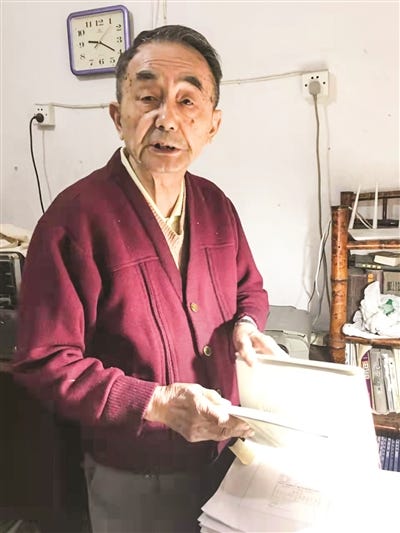
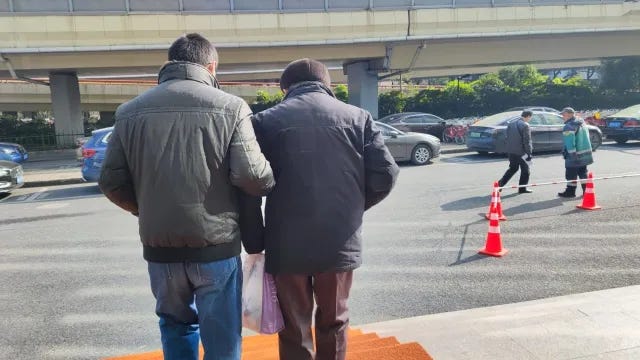
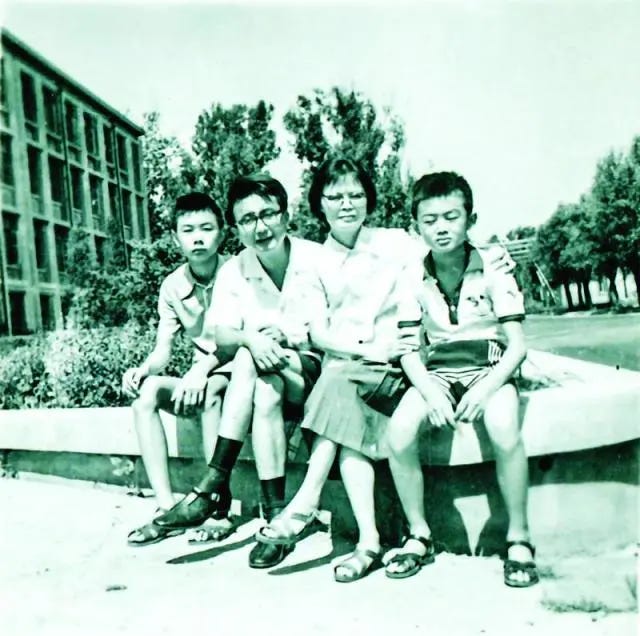


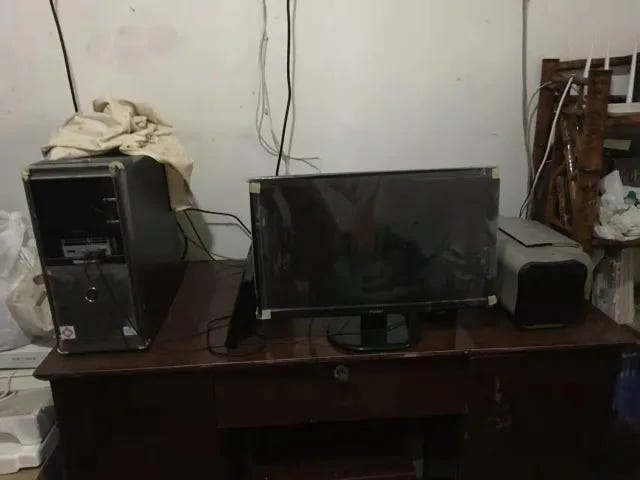


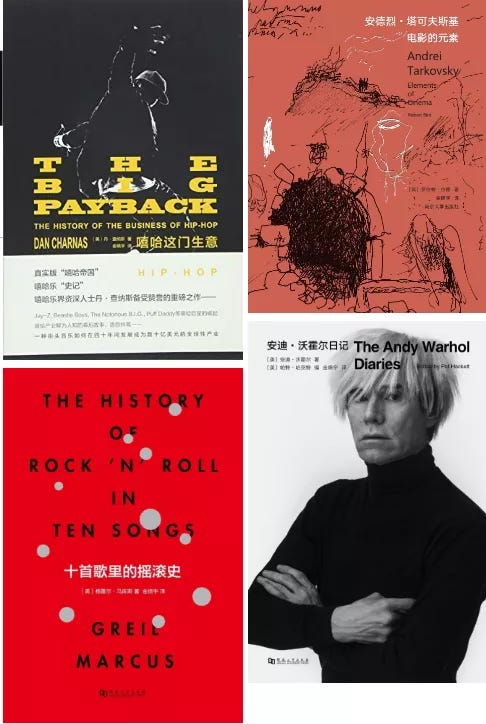
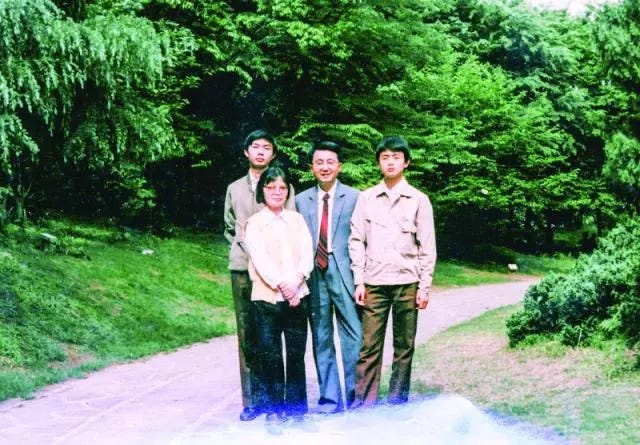

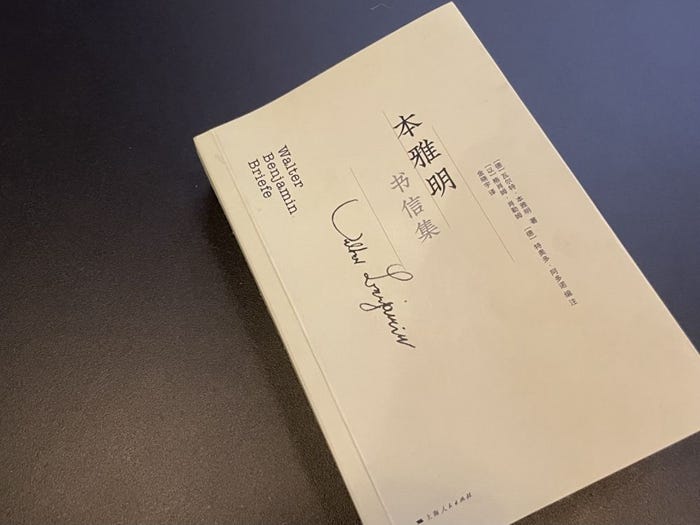

Thank you, that was a beautiful family history and the poignancy of the translator's world.
Currently in the US, according to the big book of medical diagnostic coding, bipolar disorder, there are 4 assessments of bipolar disorder. BipolaII, BipolarII, Cyclothymic, Unspecified.
The diagnosed numbers in the US will vary from state to state; via a state's medical care.
Behavioral, dialectic and cultural psychology is, often under-recommended for many reasons.
The most obvious in the US is scientific research and government interventionist policy on the medical health world.
Let us say the underlying baseline is depression which can lead to the neurological changes seen in PTSD of BipolarII patients. Also, that the psychiatric over-medication of treating depression has become the Catch22 in the diagnosis of Bipolar Disorder where PTSD requires a whole of medicine approach. Often infringing on neurological developmental disability the greater baseline.
The incidence of over-medication whether by illicit drug or, introduction of anti-depressant into thyroid, blood pressure medication, contraception, transgender blockers, immunosuppressants visa versa in the west's pharmaceutical world has reached peak globally.
Why was it necessary or appropriate to post an addendum about not romanticising bipolar disorder (and link a state newspaper article decrying romanticisation)? In what way did the original story even romanticise mental illness? Quite the opposite. The addendum soured what was otherwise an excellent story. And you wonder why Twitter gave a warning about your Twitter account.